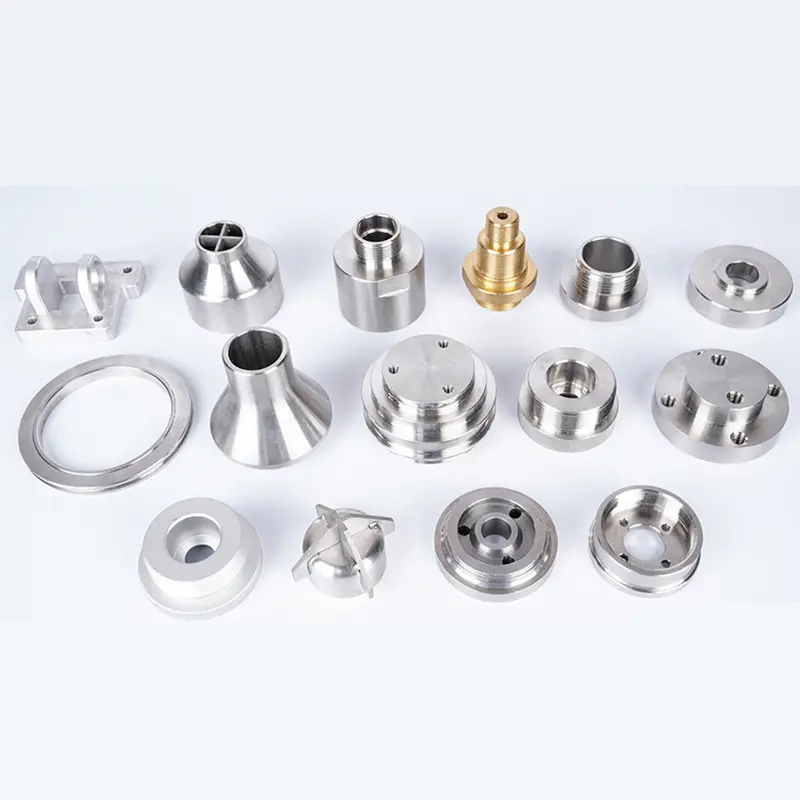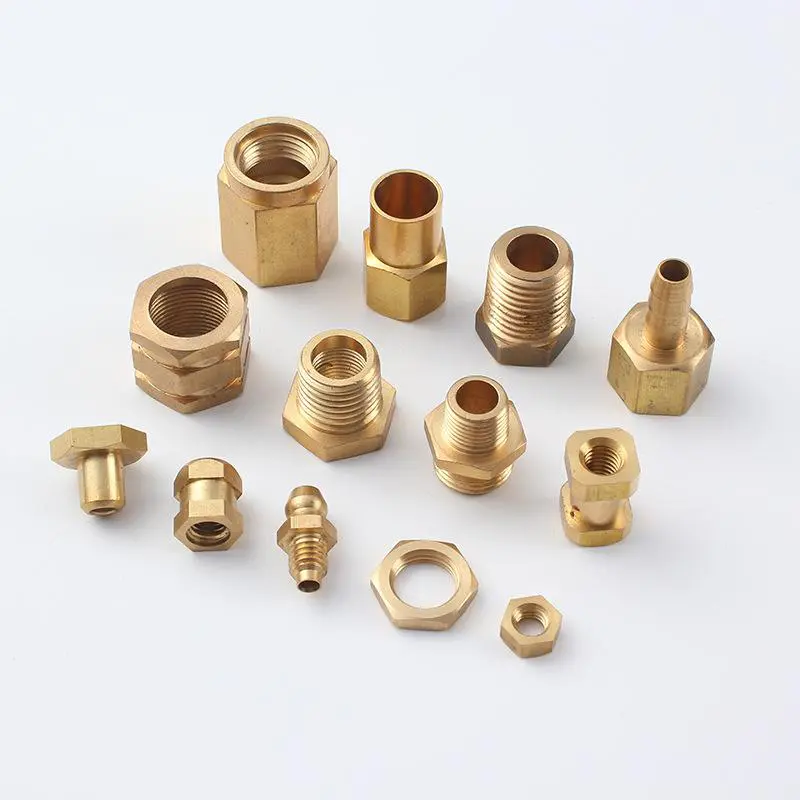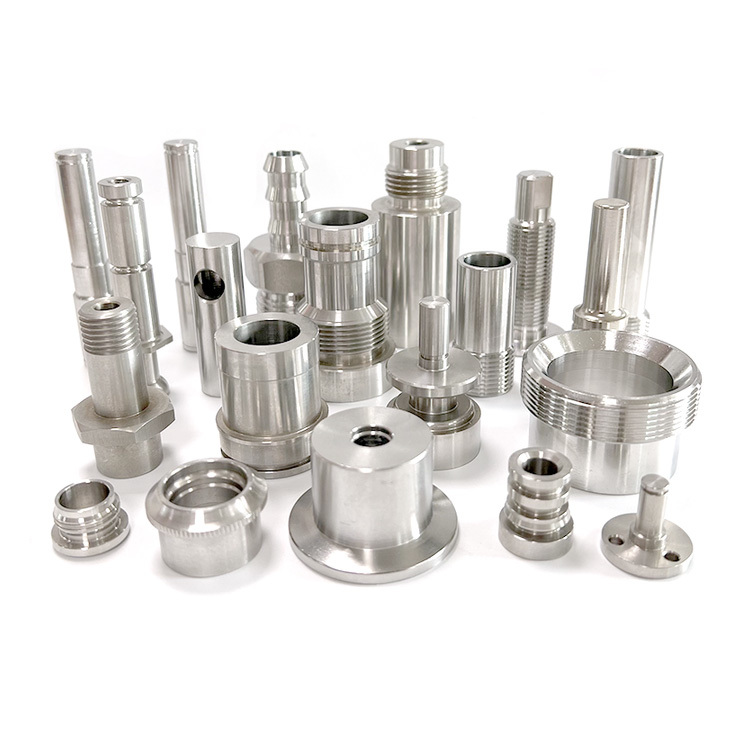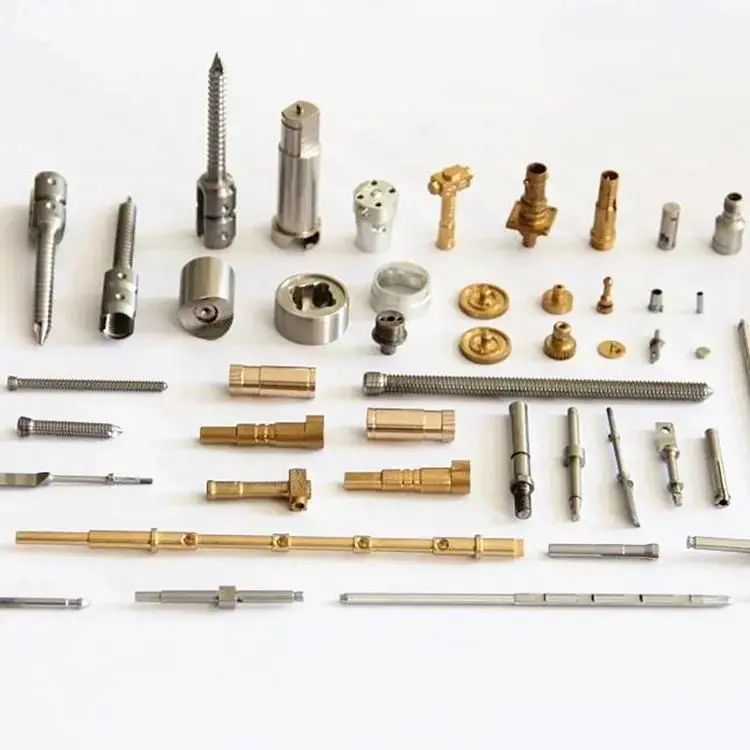How CNC Machining Parts Enhance Product Quality and Durability
Published Time:
2025-09-16
How CNC Machining Parts Enhance Product Quality and Durability
Table of Contents
- 1. Introduction to CNC Machining and Its Importance
- 2. What is CNC Machining?
- 3. Advantages of CNC Machining in Manufacturing
- 4. How CNC Machining Improves Product Quality
- 5. Enhancing Durability Through CNC Machining
- 6. Applications of CNC Machining in Various Industries
- 7. Challenges and Solutions in CNC Machining
- 8. The Future of CNC Machining Technology
- 9. Frequently Asked Questions
- 10. Conclusion
1. Introduction to CNC Machining and Its Importance
CNC (Computer Numerical Control) machining has redefined the landscape of manufacturing over the past few decades. This automated technology allows for precise control of machinery, enabling the production of intricate parts and components with unparalleled accuracy. As industries evolve, the demand for high-quality and durable products has become paramount. CNC machining offers a solution that not only meets these requirements but also enhances overall production efficiency.
2. What is CNC Machining?
CNC machining is a manufacturing process that utilizes computer-controlled machines to cut, shape, and finish materials. This technology is widely employed in the creation of complex parts from a variety of materials, including metals, plastics, and composites. The CNC process involves several key stages:
- **Design Creation**: Utilizing CAD (Computer-Aided Design) software to create detailed designs.
- **G-Code Generation**: Converting CAD designs into G-code, a programming language that instructs CNC machines on how to perform specific tasks.
- **Machining Process**: Transferring the G-code to the CNC machine, which executes the commands to fabricate the desired part.
This systematic approach enables the production of parts that meet strict tolerances and specifications.
3. Advantages of CNC Machining in Manufacturing
CNC machining offers several advantages that make it an attractive option for manufacturers:
- **Precision Engineering**: CNC machines can achieve tolerances as tight as ±0.01 mm, ensuring that every part is manufactured to exact specifications.
- **Consistency and Reproducibility**: Once a design is programmed, CNC machines can produce thousands of identical parts without variation.
- **Complex Geometries**: CNC machining can create intricate designs and features that would be challenging or impossible to accomplish with traditional machining methods.
- **Reduced Lead Times**: Automated processes speed up production, allowing for quicker turnaround times and increased productivity.
These advantages position CNC machining as a cornerstone of modern manufacturing.
4. How CNC Machining Improves Product Quality
Quality assurance is crucial in manufacturing, and CNC machining significantly enhances product quality in several ways:
- **Minimized Human Error**: Automation reduces the likelihood of human mistakes, which can lead to defects and inconsistencies in products.
- **Material Integrity**: CNC machining maintains the structural integrity of materials, minimizing the risk of warping or distortion during the manufacturing process.
- **Controlled Manufacturing Environment**: CNC machines operate in controlled conditions, reducing the impact of external factors such as temperature and humidity on the final product.
By addressing these quality concerns, CNC machining ensures that manufacturers produce reliable and high-performing products.
5. Enhancing Durability Through CNC Machining
Durability is another critical aspect of product quality, and CNC machining plays a vital role in enhancing it:
- **High-Quality Materials**: CNC machining often utilizes high-grade materials that are better suited for specific applications, resulting in more robust and long-lasting products.
- **Optimized Designs**: The ability to create complex geometries allows for optimized designs that can withstand greater stress and load, improving overall durability.
- **Surface Finishing**: CNC machining can achieve superior surface finishes that not only enhance aesthetics but also reduce wear and tear, extending the life of components.
These durability enhancements contribute to lower maintenance costs and increased customer satisfaction.
6. Applications of CNC Machining in Various Industries
CNC machining is utilized across multiple industries, showcasing its versatility and effectiveness:
- **Aerospace**: Precision parts for aircraft and spacecraft require stringent quality standards, making CNC machining indispensable.
- **Automotive**: From engine components to body panels, CNC machining is crucial for producing reliable automotive parts.
- **Medical Devices**: The medical industry relies on CNC machining for the creation of surgical instruments and implantable devices.
- **Electronics**: CNC machining is used to manufacture enclosures and components for electronic devices, ensuring precision and compliance with specifications.
These examples emphasize the wide-reaching impact of CNC machining on modern manufacturing processes.
7. Challenges and Solutions in CNC Machining
While CNC machining offers numerous benefits, it is not without challenges:
- **Initial Costs**: The investment in CNC machinery and software can be significant. However, manufacturers can offset these costs through increased efficiency and reduced labor expenses over time.
- **Skill Requirements**: Operating CNC machines requires specialized knowledge. Continuous training and development programs can help bridge this skills gap.
- **Maintenance**: Regular maintenance is essential to ensure the longevity of CNC machines. Implementing a proactive maintenance schedule can mitigate downtime and extend machine life.
Addressing these challenges is crucial for maximizing the benefits of CNC machining.
8. The Future of CNC Machining Technology
The future of CNC machining looks promising, with advancements on the horizon:
- **Integration with AI**: The incorporation of artificial intelligence is expected to enhance machining processes further, optimizing production based on real-time data.
- **Additive Manufacturing**: Combining CNC machining with 3D printing technologies will allow for the creation of complex parts that were previously unfeasible.
- **Sustainability Initiatives**: As environmental concerns grow, CNC machining is evolving to adopt sustainable practices, minimizing waste and energy consumption.
These trends indicate that CNC machining will continue to play a pivotal role in the evolution of manufacturing technologies.
9. Frequently Asked Questions
What materials can be machined using CNC technology?
CNC machining can work with a variety of materials, including metals (aluminum, steel, titanium), plastics (ABS, PVC), and composites (carbon fiber, fiberglass).
How does CNC machining compare to traditional machining methods?
CNC machining offers superior precision, consistency, and the ability to create complex geometries compared to traditional machining methods, which often rely on manual operations.
What industries benefit the most from CNC machining?
Industries such as aerospace, automotive, medical devices, electronics, and consumer goods significantly benefit from CNC machining due to its precision and efficiency.
Can small businesses afford CNC machining equipment?
While the initial investment can be high, many manufacturers find that CNC machining pays for itself through increased productivity and reduced labor costs. Leasing options and smaller, more affordable machines are also available for small businesses.
What is the typical lead time for CNC machined parts?
Lead times can vary based on the complexity of the design and the production volume. However, CNC machining generally offers quicker turnaround times compared to traditional methods.
10. Conclusion
In conclusion, CNC machining is a transformative technology that significantly enhances product quality and durability. By leveraging precision engineering, automation, and advanced materials, manufacturers can create high-quality components that meet the demands of modern industries. As technology continues to evolve, CNC machining will undoubtedly remain at the forefront of manufacturing innovation, driving efficiency and excellence in product development. Embracing this technology is not just an option; it's a necessity for staying competitive in today's dynamic market.
Previous Page
Previous Page
NewsCenter
Beijing Pafinal Precision Machinery Co., Ltd.
Email:sales@pafinal.com

Address: No. 239 Huanhe South Road, Tianjin Pilot Free Trade Zone (Airport Economic Zone), Tianjin
中企跨境-全域组件
制作前进入CSS配置样式
sales@pafinal.com:
Whatsapp:
在线客服添加返回顶部
图片alt标题设置: PAFINAL
表单验证提示文本: Content cannot be empty!
循环体没有内容时: Sorry,no matching items were found.
CSS / JS 文件放置地




 2025-09-16
2025-09-16


